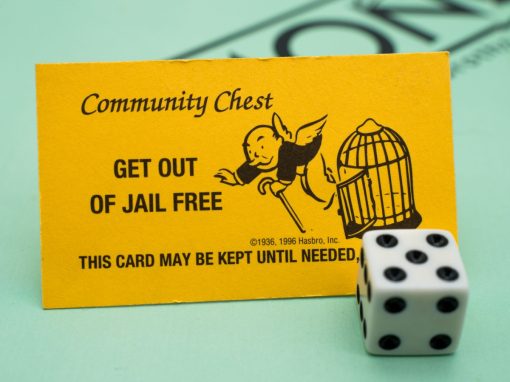Lifestyle Equities CV v Ahmed [2024] UKSC 17
In a recent landmark decision, the UK Supreme Court delivered a decisive victory for Mr. Ahmed and Ms. Ahmed, directors of Hornby Street Ltd., in a high-stakes trade mark battle with Lifestyle Equities. The court’s decision reshapes the landscape of trade mark law, highlighting that accessory liability hinges on more than just involvement, it demands knowledge of wrongdoing. This landmark judgment highlights the importance of intent and awareness in the complex world of trade mark infringement but also begs the question of whether this decision allows directors to more easily escape personal liability in cases of trade mark infringement.
Background and First Instance Decisions
In its recent judgment, the UK Supreme Court addressed allegations of trade mark infringement against Mr Ahmed and Ms. Ahmed, directors of Hornby Street Ltd. Hornby Street Ltd. had sold products under the “Santa Monica Polo Club” brand, which Lifestyle Equities (hereinafter referred to as “Lifestyle”) claimed infringed on their “Beverly Hill Polo Club” trade marks.
Lifestyle are the owners of a various registered trade marks for “Beverly Hills Polo Club” in the category of clothing and successfully pursued trade mark infringement proceedings against Hornby Street Ltd on the grounds of a confusing similarity between its registered trade marks and the “Santa Monica Polo Club” logos used by Hornby Street Ltd.
At first instance and at appeal, the UK High Court and subsequently the Court of Appeal found that the Ahmeds were jointly liable with Hornby Street Ltd. for the trade mark infringements, and they were ordered to account for a portion of their profits.
Mr. and Mrs. Ahmed were initially held liable for personally aiding the company’s infringing activities and this was upheld on appeal. This decision was likely influenced by the company’s financial struggles, which eventually led to its dissolution. Both parties appealed to the Supreme Court.
Supreme Court Decision
However, the Supreme Court overturned the first instance decisions of the UK High Court and Court of Appeal, dismissing Lifestyle’s appeal and ruling in favour of the Ahmeds.
The court held that the Ahmeds could not be liable as accessories to the infringement because they were unaware of the essential facts that made the use of the ” Santa Monica Polo Club ” signs wrongful. Accessory liability in trade mark infringement, the court clarified, requires knowledge of the wrongful nature of the acts. As the Ahmeds lacked such knowledge, they could not be held jointly liable with the company.
Additionally, the court ruled that the Ahmeds should not account for profits made by Hornby Street, as they had not personally profited from the infringements. The court also overturned the previous orders that had attributed a portion of their salaries as profits from the infringement, determining there was no evidence that these salaries were anything other than fair market compensation for their services. Thus, the orders for an account of profits were wrongly made.
The Supreme Court’s decision highlights the necessity of knowledge of wrongdoing for accessory liability in cases of strict liability torts like trade mark infringement.
Final Comments
In its judgement, the Supreme Court clarified that accessory liability for a company’s director is not as strict as primary liability for infringement of a registered trade mark, in that knowledge of wrongdoing is required.
Thus, this ruling raises the bar for trade mark owners seeking personal liability claims against individuals who assist primary infringers. Trade mark owners must now establish that the assisting individual knew or should have reasonably known about the infringement risk. This makes pursuing such claims more challenging, particularly when the infringement is not clear-cut.
The court specified that the requirement for personal knowledge of infringement risks applies broadly to anyone alleged to have assisted a primary infringer, not solely directors.
The Supreme Court also clarified in its decision the conditions under which it is evident that an individual knows they are aiding a primary infringer. The court provided a clear example: a company director who knowingly orders counterfeit goods. It emphasized that individuals must act in good faith and cannot escape liability by simply “turning a blind eye” to potential infringement risks.
However, the court acknowledged that proving knowledge can be complex in less straightforward cases, noting that in instances where the logos are not identical, this allows for debate and differing opinions about the level of similarity and potential for confusion. This complexity affects whether an individual can be deemed to have actual knowledge of infringement risks.
Hence, while the Supreme Court’s decision has not given company directors’ a ‘Get Out of Jail Free Card’ for personal liability per se, it has made it significantly more difficult for trade mark owners to pursue accessory liability claims against individuals who assist primary infringers in the future.
It remains unclear what specifically constitutes knowledge in trade mark infringement cases. For instance, what level of knowledge is required, just awareness of risk or certainty? Does an employee performing a trade mark clearance search count as having knowledge and thus risk personally infringing? These questions remain unanswered.
However, it is clear that trade mark owners seeking personal accessory liability claims must now provide clear evidence of wrongdoing. This emphasises the importance of trade mark owners promptly notifying potential infringers and their associates of alleged infringements while avoiding unjustified threats of infringement.









